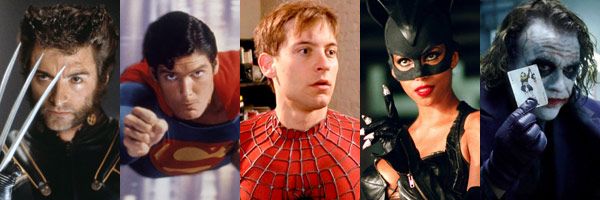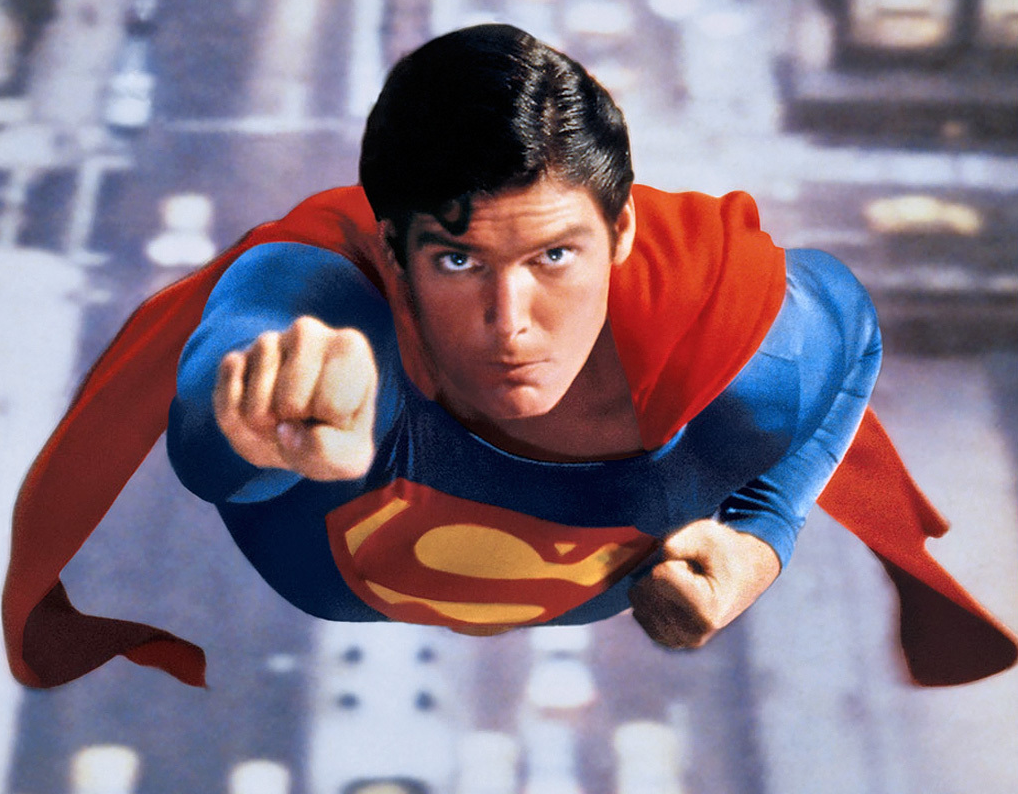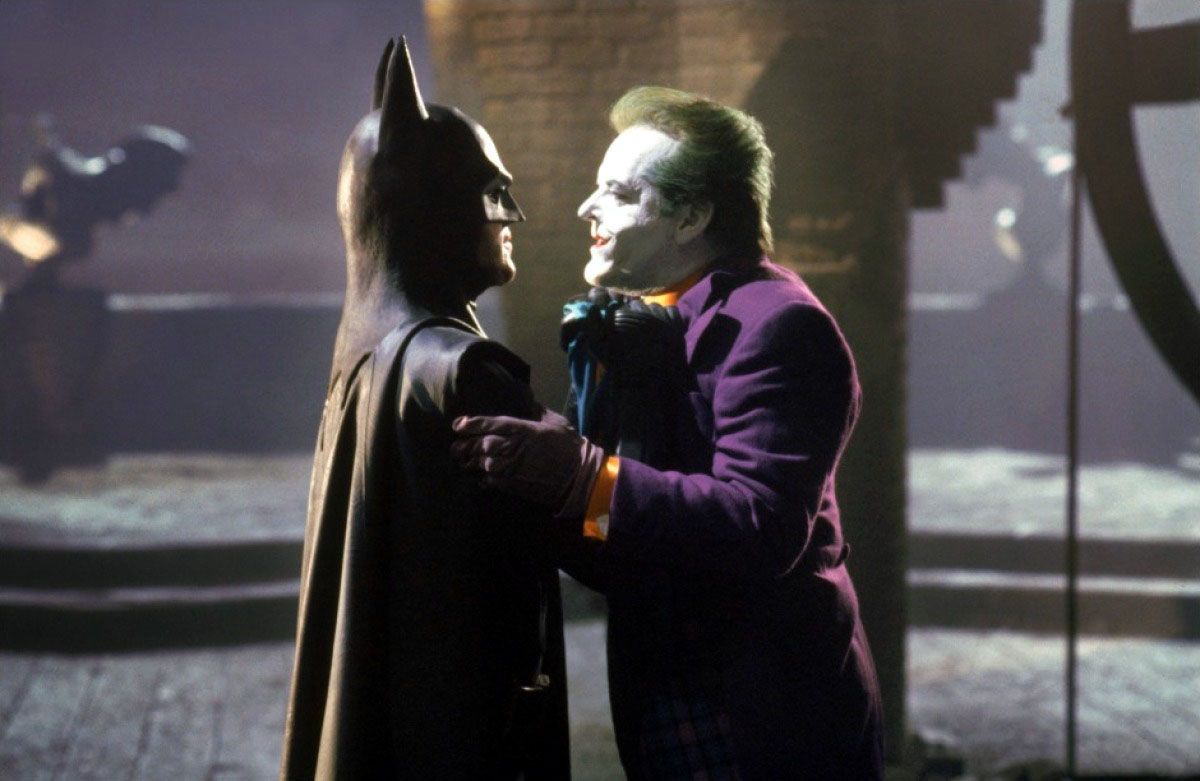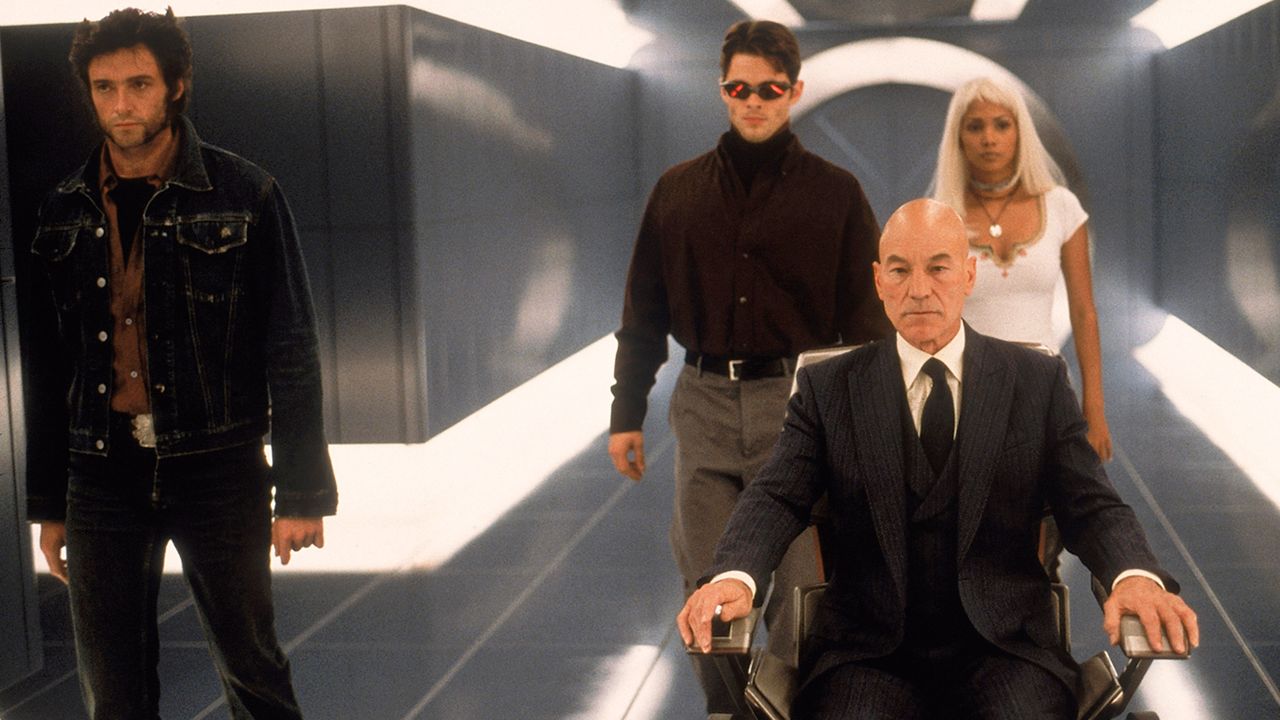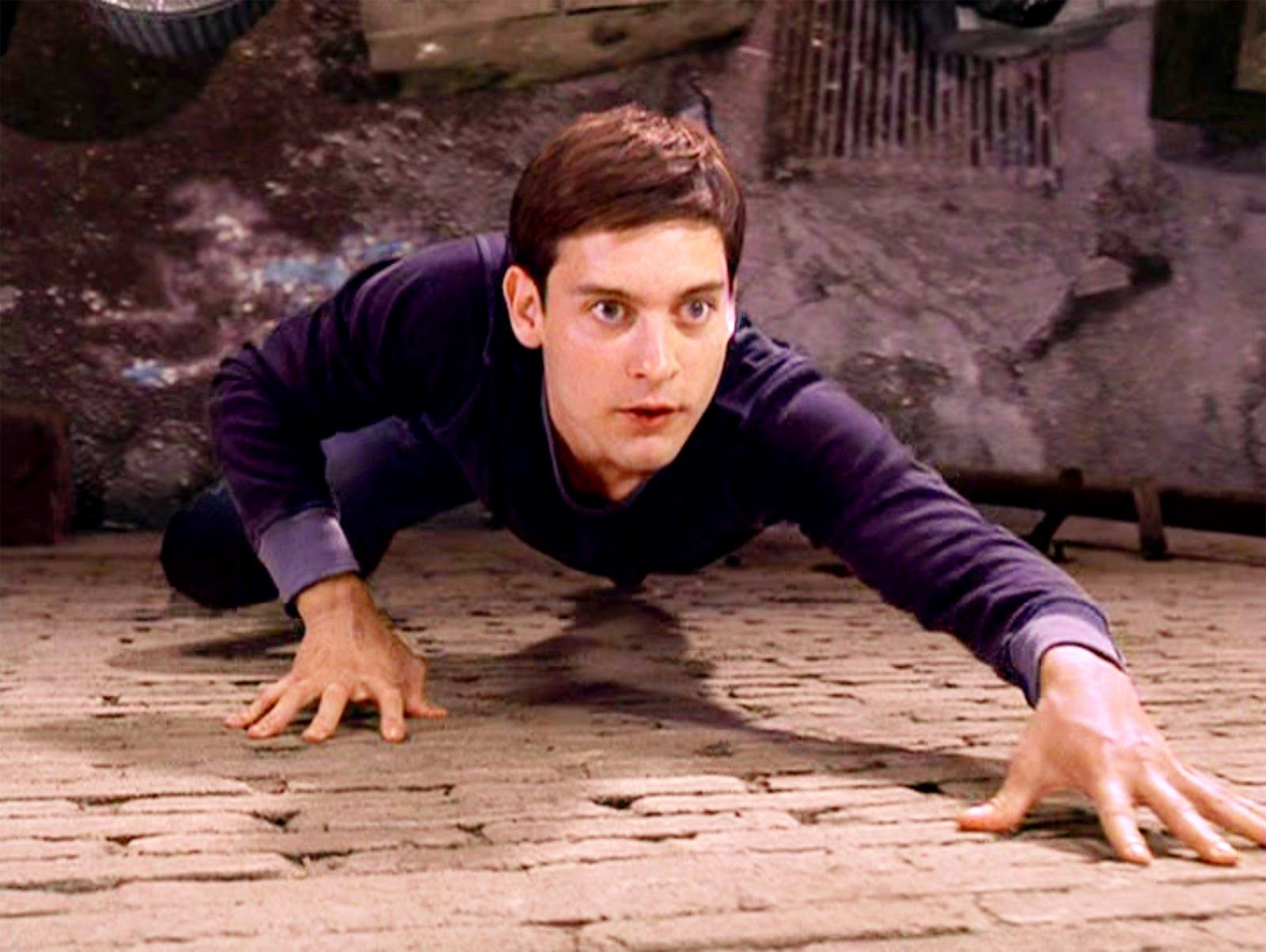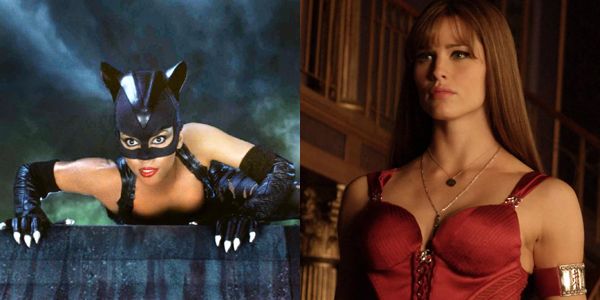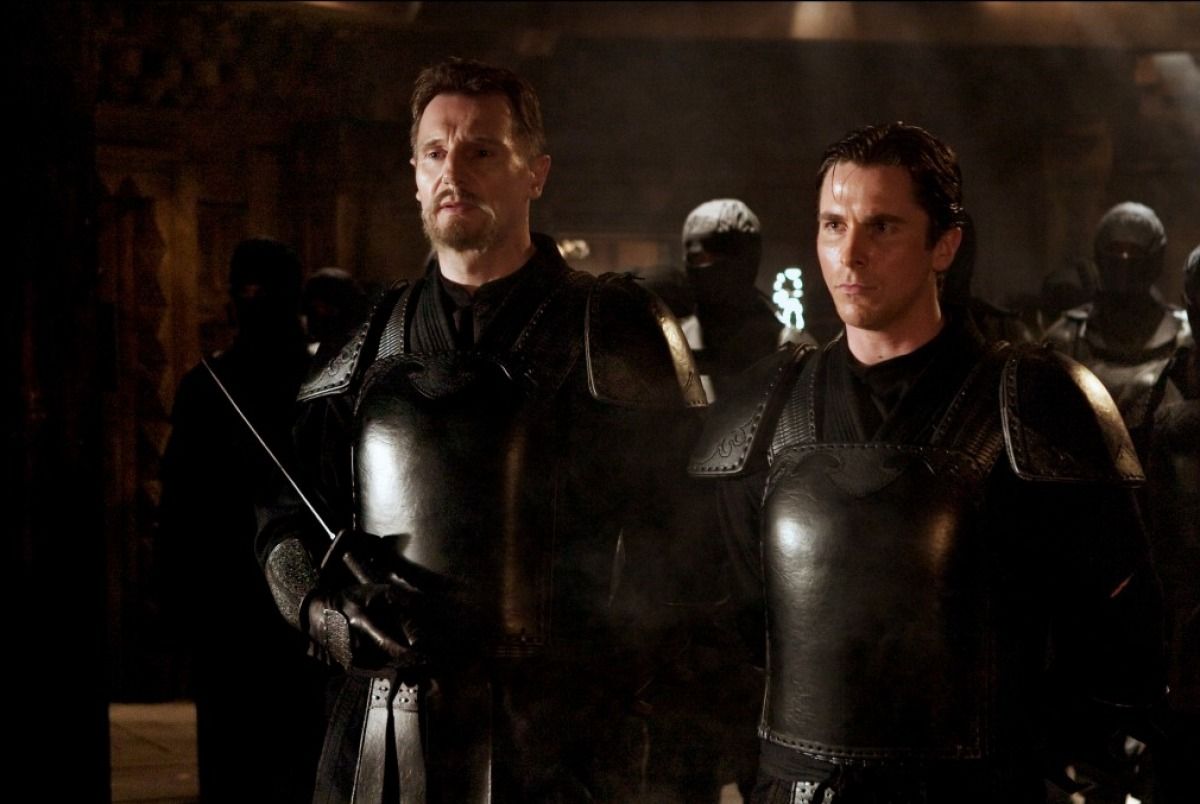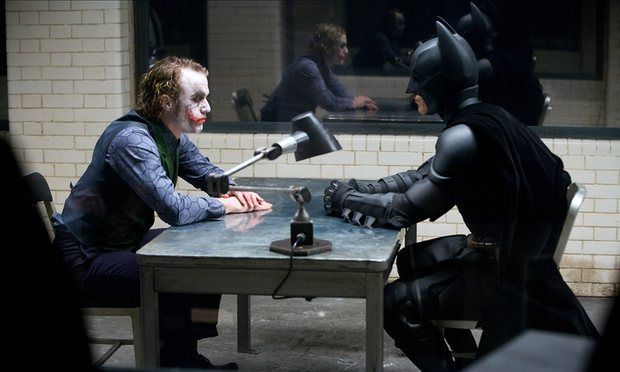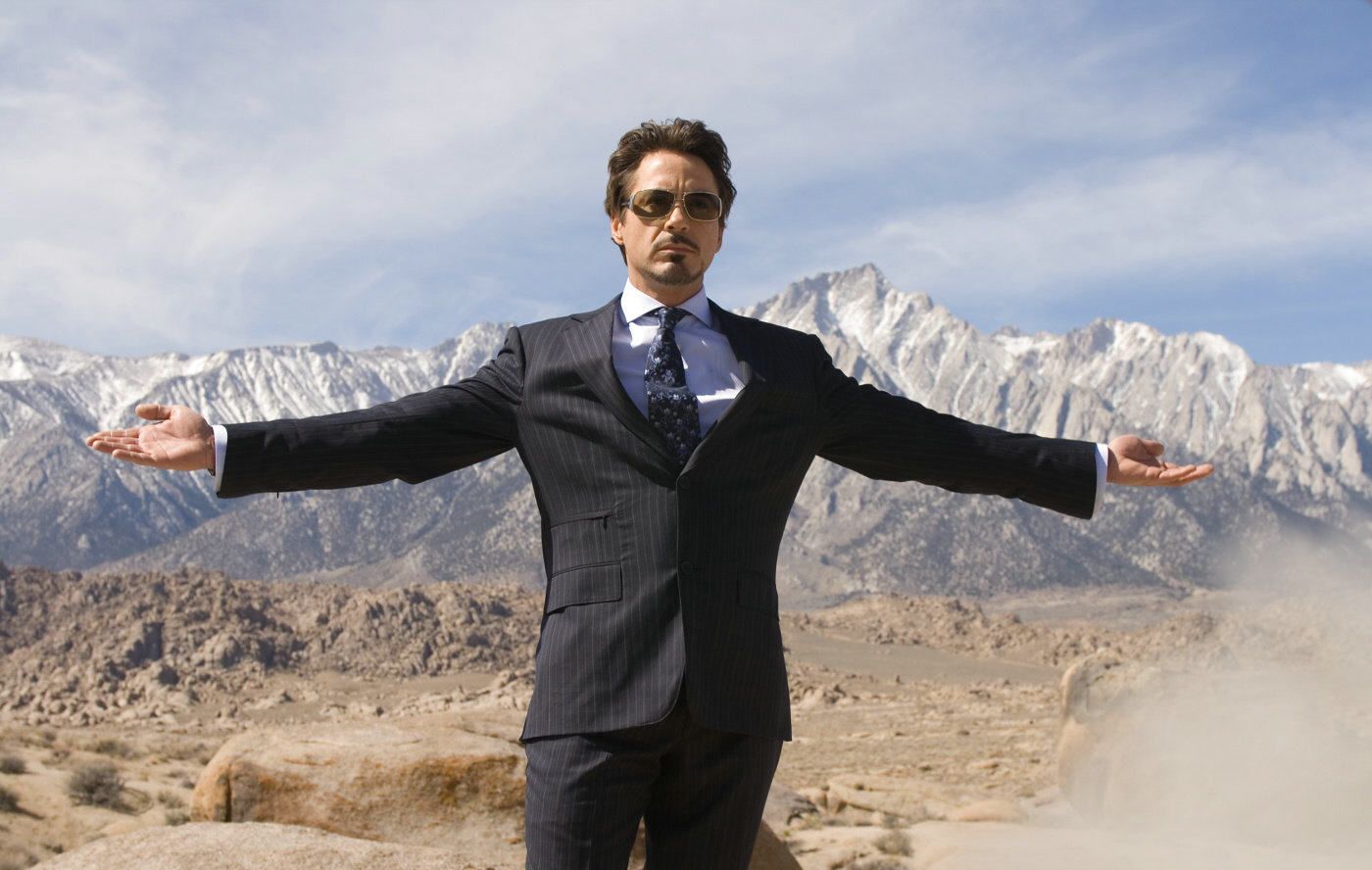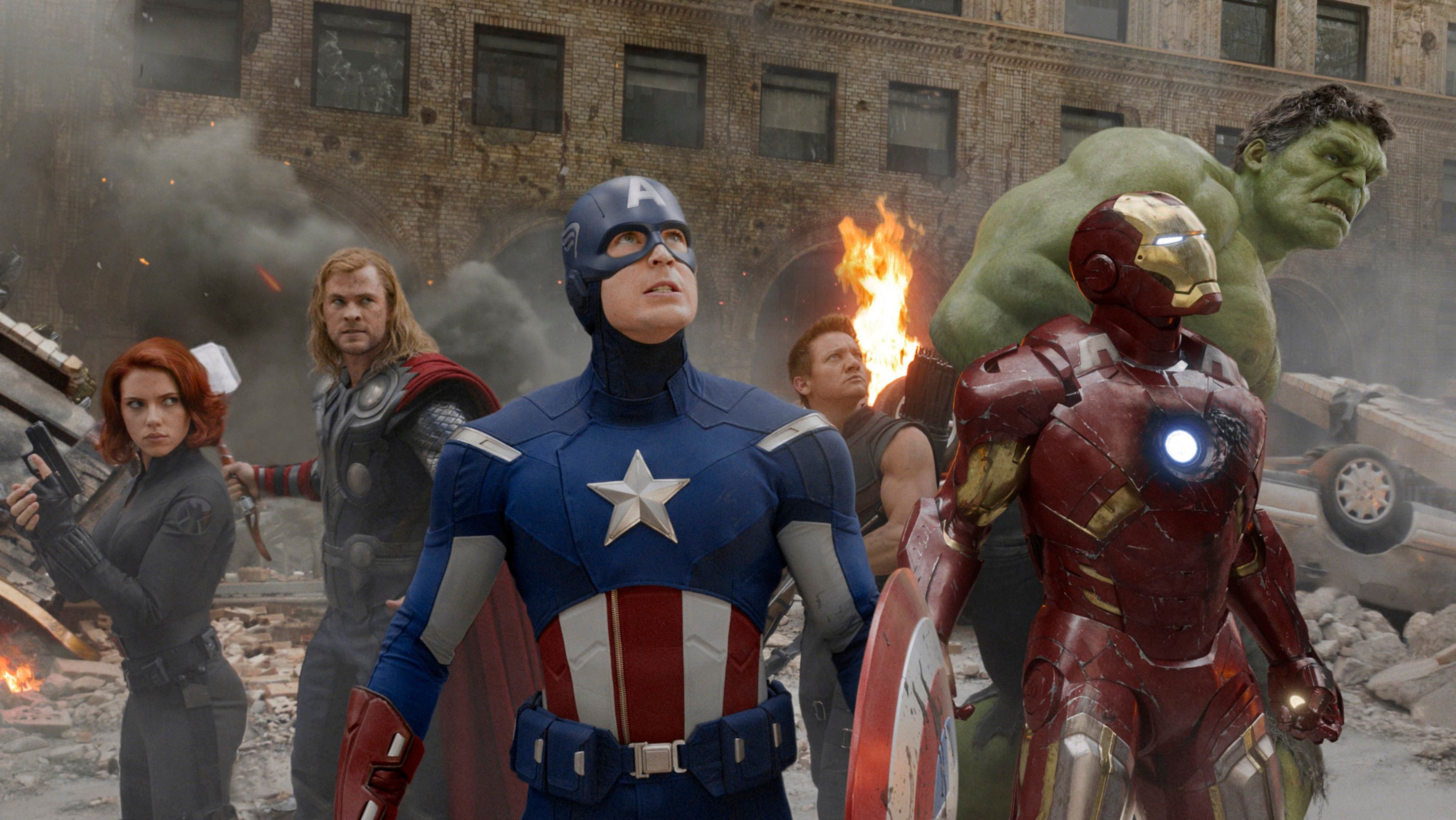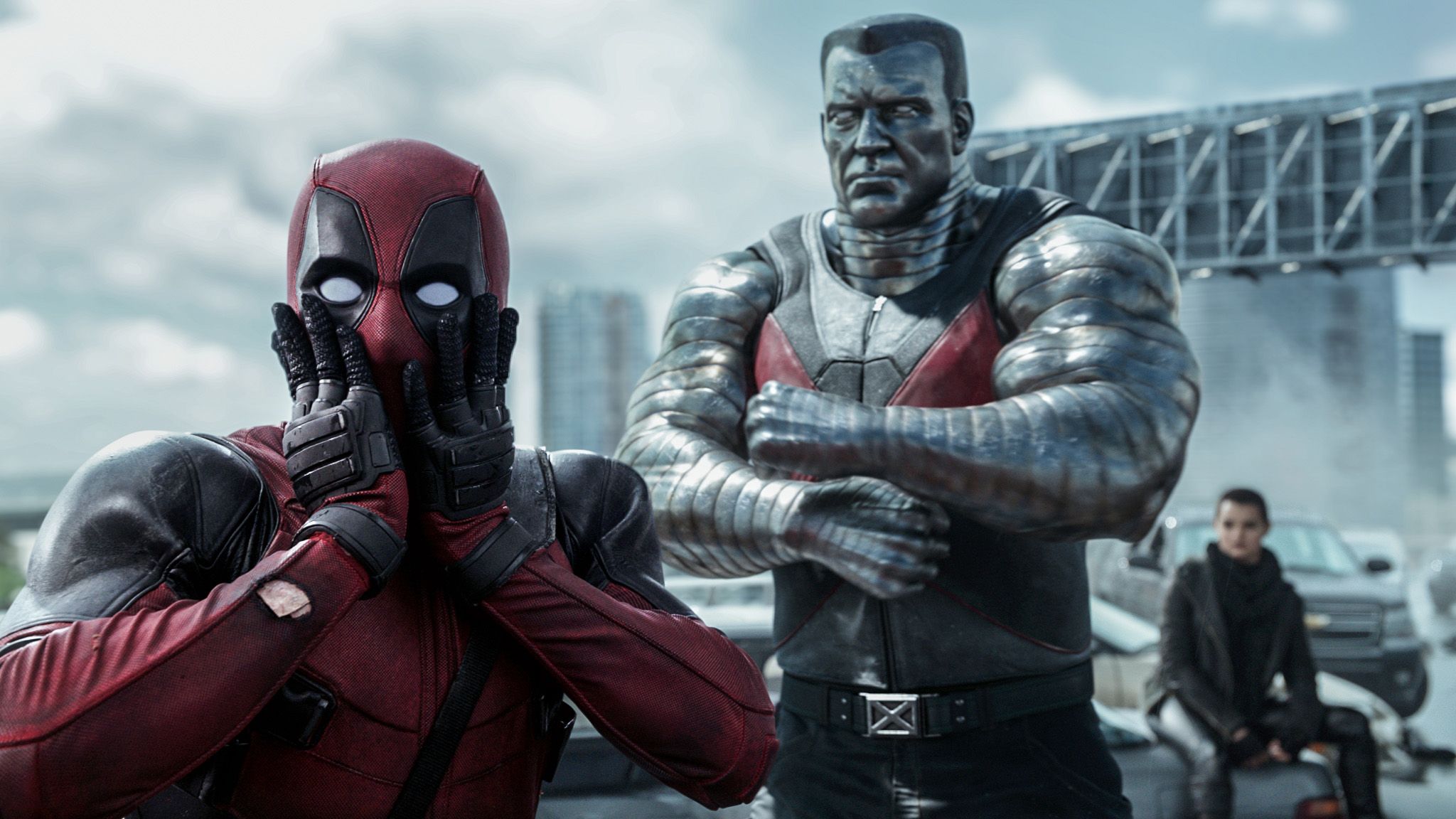While the superhero movie genre has certainly hit its stride over the last decade or so, it’s been around for much longer and went through a number of fits and starts to get here. There have been films that offered a groundbreaking take on comic book material that forced audiences to look at the genre a different way; there have been films that shook up the formula just enough to kick-start a new trend; and there have been films that have set the superhero genre back.
With superhero films like Logan in the rearview and The New Mutants on the way, which stretch the limits of the genre even further, now seemed like an appropriate time to look back at 10 movies that evolved the superhero movie genre in a significant way. Some for good, some for bad, but all certainly had an effect on the genre as a whole and the films that came after.
Superman (1978)
We begin, of course, with Richard Donner’s 1978 film Superman. Prior to this, superhero movies had existed but they were either relegated to TV movies or silly one-offs like the 1966 Batman. With Superman, however, Donner was continuing on with the 70s cinema trend of breaking the rules, as he dared to present the Man of Steel as a character capable of both drama and comedy. Donner took Superman seriously, and while the film is a far cry from the gritty superhero dramas we see today, it presented a multi-dimensional take on this comic book hero. Moreover, with Warner Bros. giving the film a substantial budget, Donner took full advantage of cutting-edge technology to make Superman’s heroic feats come to stunning life on the big screen. The film spawned a series of sequels that got progressively cheesier (and cheaper), which themselves set the superhero genre back, but Donner’s original film still stands today as one of the best entries in the genre and was a touchstone for some of today’s most accomplished filmmakers.
Batman (1989)
The damage done by the progressively cheesy and cheap Superman sequels was hard to recover from, but filmmaker Tim Burton revived the genre with 1989’s Batman. Much like Donner’s Superman, this itself was a groundbreaking take on the genre, delving into the demented psyche of Bruce Wayne/Batman while also offering up tremendous production value. Jack Nicholson somewhat steals the show as The Joker with the villain upstaging the hero—a trend that still continues to this day—but Burton’s Batman grounded the world and the character into something a bit macabre, and fittingly dark. Buoyed by the comic runs of folks like Frank Miller, Burton embraced the more complicated and adult aspects of the Batman persona and gave audiences a thrill ride and a fascinating character study all in one.
Burton’s sequel, Batman Returns, would go a bit too dark for the studio’s taste, but the box office success of Batman spurred Hollywood to start snatching up comics properties left and right to mimic that success. And while films like The Shadow and Judge Dredd failed to catch on with audiences the same way, the roots of the superhero movie genre today can be traced back to Burton’s stylized take on The Dark Knight.
X-Men (2000)
But if you’re looking for a direct grandfather to the current state of the superhero movie genre, that would be 2000’s X-Men. Filmmaker Bryan Singer was still hot off the success of The Usual Suspects and Apt Pupil when he was hired to bring the Marvel superheroes to the big screen. Singer admits he wasn’t a comics fan when he signed onto the project, but he immediately saw a direct correlation between the prejudice and hate heaped on the mutants for being “different” and the treatment of minorities and gays in modern America (indeed, the comics were thematically rooted in the Civil Rights movement as parallels can be made to Professor X as Martin Luther King Jr. and Magneto as Malcolm X).
What Singer crafted was a superhero movie that wasn’t afraid to ignore the comics if it meant making a better film. Gone were the colorful spandex costumes of the source material, with Singer and Co. instead opting for something more realistic to ground general audiences who weren’t previously familiar with the characters. Moreover, Singer assembled an ensemble cast filled not with the hottest young models of the day, but critically acclaimed performers like Anna Paquin, Ian McKellen, and Patrick Stewart.
Not only did X-Men kick off a superhero franchise that’s still going strong almost 20 years later, but it proved that accomplished filmmakers could enter into this genre without forsaking the more “prestige” aspects of moviemaking. Superhero movies didn’t simply have to appease comics fans—they could be films. You can draw a direct line from Singer’s X-Men to Oscar-nominated filmmaker Ang Lee tackling Hulk, and regardless of the end result, getting a director of that caliber to make a comic book movie in 2003 was a big deal. Singer, for all intents and purposes, ignited the fire that is the modern superhero movie.
Spider-Man (2002)
In addition to X-Men, however, another early 2000s comic book movie had a profound effect on the genre. Sony Pictures had been trying for decades to turn Spider-Man into a movie, and they finally succeeded with the somewhat risky choice of Evil Dead and A Simple Plan filmmaker Sam Raimi directing. Raimi brought his own unique sensibility to the property while also crafting a big, colorful superhero movie that audiences of all ages could enjoy. If Singer’s X-Men was a tad darker and a bit more serious, Spider-Man offered up spectacle on a larger scale and a much more streamlined thematic heart—albeit with flourishes of Raimi’s dark humor as well.
Where Spider-Man really changed the game, though, was at the box office. The film became the first movie to ever cross the $100 million mark at the box office in a single weekend, setting a record at $114 million that wouldn’t fall for another four years. Does Spider-Man set that record without the slow-and-steady word-of-mouth success of X-Men two years earlier? Probably not, which is why these two films are so closely tied together in terms of influence. Spider-Man set an example for Hollywood that you could make a lot of money in the superhero genre while also netting positive reviews. That’s why the film remains one of the most influential superhero movies ever made, as it gave rival studios the confidence to greenlight $150+ million superhero films of their own.
Catwoman (2004)/Elektra (2005)
Here’s where we get to superhero movies that changed the genre for the worse. Bolstered by the massive success of Spider-Man at the box office, studios were suddenly scrambling to get their own comic book adaptations into theaters. Warner Bros. put into motion plans for Halle Berry to spearhead her own DC spinoff Catwoman with French filmmaker/VFX supervisor Pitof at the helm, and 20th Century Fox jumped the gun on a Daredevil spinoff with the Jennifer Garner-fronted Elektra. Both of these films were rushed with inexperienced filmmakers at the helm, both failed, and both have led to a lasting stigma surrounding female-fronted superhero movies.
While it's getting better, female-fronted superhero films are still incredibly rare. Marvel Studios made 20 male-fronted movies before they finally make a superhero film with a female lead (Captain Marvel), and rival studios haven’t fared better. Whenever you bring up a female comics property as a potential adaptation, people point to Catwoman and Elektra as evidence that female-fronted superhero movies fail. But these are two films that were released over a decade ago, neither of which were given the same kind of care and development that a lot of superhero films enjoy today. Did Hulk and The League of Extraordinary Gentlemen and Blade: Trinity stop Hollywood from making male-fronted comic book movies? Of course not.
Catwoman and Elektra were notoriously panned by critics and were D.O.A. at the box office, and there wasn't another major superhero movie with a female lead until 2017. That’s a lasting effect we could’ve done without, although it’s not all on these two films—Hollywood’s inherent sexism doesn’t help matters. Thankfully, the box office success of both Wonder Woman ($821 million worldwide) and Captain Marvel ($1.1 billion) have begun putting an end to this myth, and upcoming films like the Black Widow spinoff and Birds of Prey show things are finally turning around.
Batman Begins (2005)
While Warner Bros. was busy rushing Catwoman into production, the studio was also quietly working on revitalizing the Batman property after it petered out with 1997’s Batman & Robin. Filmmaker Christopher Nolan essentially made Insomnia as a proof-of-concept piece to show he could handle his way around a studio movie, and he was handed the reigns to the Dark Knight for a film that would coin the term “gritty reboot.” Batman Begins is a groundbreaking piece of cinema not just in the superhero movie world, but also in the film world as a whole. We’re still seeing projects described as “a gritty reboot in the vein of Batman Begins” as Nolan and co-writer David S. Goyer brilliantly recontextualized Batman for a modern audience by diving deep into his origin story.
The film would, obviously, spur one of the most iconic film trilogies in recent memory, and now anytime a major franchise property needs to be rebooted, Batman Begins serves as the gold standard. It reintroduced an iconic character to audiences in a refreshing way, and it took its story and characters very seriously. Only the be upstaged by its sequel…
The Dark Knight (2008)
If Batman Begins is the gold standard for franchise reboots, The Dark Knight is the epitome of superhero movie as high art. Instead of simply starting over with a new story and new characters, Nolan’s sequel builds on the character development established in Batman Begins and introduces a villain that speaks to a central, timely thematic throughline. The Dark Knight is Christopher Nolan tackling the War on Terror within the context of a superhero movie. The Joker is an agent of chaos, and Batman faces the issue of escalation as his tactics to defeat The Joker only seem to embolden his enemy to launch larger, deadlier attacks.
I say again: Christopher Nolan made a superhero movie about the War on Terror, and it’s a modern masterpiece. That takes confidence and ambition to spare, and Nolan proved that superhero movies can indeed be held up alongside the cinematic greats. And of course the story and characters work on a base level as well, with Heath Ledger delivering one of the most iconic performances in film history as The Joker. The Dark Knight is a marvel in every sense of the word, and in terms of altering the trajectory of the superhero movie genre, it forced future filmmakers to step up their game. It is every bit as influential to blockbuster filmmaking as The Empire Strikes Back.
Iron Man (2008)
The same year that Christopher Nolan delivered his magnum opus, Marvel was making one of the biggest gambles in its history with Iron Man. The comic book company forged its own movie studio called Marvel Studios, and left with “also-ran” properties after selling off the A-Listers like X-Men, Spider-Man, and Fantastic Four, they first produced Iron Man. I remember the lead-up to Iron Man—folks had no idea who this character was and were dubious from the start. But director Jon Favreau, star Robert Downey Jr., and the team at Marvel led by President Kevin Feige ended up crafting the most important movie of their careers.
Taken as-is, Iron Man isn’t particularly groundbreaking. It’s a good movie no doubt, and Downey Jr. is terrific, but it didn’t break the mold in terms of style or narrative. What the success of Iron Man did, however, was make the MCU possible. If Iron Man fails, there is no Marvel Cinematic Universe. But going on gut feeling, Favreau and Co. shot a little tag for the credits with Samuel L. Jackson as Nick Fury, which sent comic fans through the roof. The film grossed a solid $585.1 million worldwide, and while Iron Man 2 would almost undo all the goodwill of the first movie, Iron Man set Marvel Studios on a path that would change the course of franchise filmmaking forever.
The Avengers (2012)
The Avengers is the culmination of the end credits sequence from Iron Man. While you can look now and see that Marvel Studios was simply doing what was done in the comics, never before had a studio successfully produced a series of standalone films with different characters all taking place in the same universe, leading up to one big event film that would bring these characters together in one movie. Even as Iron Man was a success, and films like Thor and Captain America did OK at the box office, there was no guarantee audiences would buy The Avengers.
The film’s secret weapon is writer/director Joss Whedon, who proved so integral to the MCU that after The Avengers, he served as a consultant on all of the studio’s Phase 2 films as he developed Avengers: Age of Ultron. Now the MCU is one of the most popular franchises in history, and Marvel Studios laid the foundation for what became a recurring trend at nearly every rival studio.
Spurred by the success of The Avengers, studios began looking to craft their own “interconnected universes”. Look no further than Warner Bros.’ attempts to launch the DCEU, or Sony’s scuttled plans for a Spider-Man universe, to see how much of a miracle it is that Marvel pulled this off. The lasting effects are still going strong, and you see Fox trying to turn its own comic book properties into an MCU-style universe. It’s weird to think back to a time when studios simply either made sequels or spinoffs, not “universe” movies, and no doubt The Avengers, Iron Man, and the MCU as a whole have probably changed the superhero genre more than anyone else.
Deadpool (2016)
The most recent game-changer in the superhero movie realm came just last year, as the long-developing Deadpool movie finally hit theaters last February. This is a movie that 20th Century Fox repeatedly said they did not want to make. It was a risky endeavor as the film was envisioned as R-rated, the hero repeatedly broke the fourth wall, and the film’s only recognizable movie star—Ryan Reynolds—would have his face covered by a mask for most of the film. So when Fox finally relented, they did so with a fraction of the budget of other superhero movies. But this gamble paid off, and the low price tag makes the film’s staggering $783.1 million box office haul that much more lucrative.
Deadpool proved that superhero movies don’t have to fit into one specific box. They can be filthy and violent and juvenile, and audiences will still turn out in droves. Spurred by the box office success we’ll no doubt see a slew of even edgier superhero movies on the horizon (Deadpool convinced Fox to OK an R-rating for Logan), so we have Deadpool to thank for giving studios the precedent to back even riskier films that further diversify the genre.

